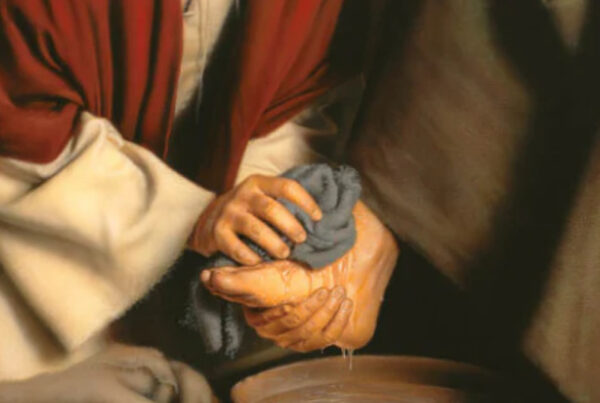Book of Amos: Chapter 1 (Part 1)
Amos speaks as one sent from Zion, i.e. Jerusalem, where everyone knows that God dwells. “The pastures rumble from the sound of His voice” indicates that Amos, being a farmer, was unable to dismiss God’s calling. As He lays out His plan of judgment, God begins with the city at the northernmost border of Israel—Damascus. “For three transgressions…, even for four” is considered a literary mechanism to express the abundance of sins, but is also interpreted as the straw that broke the camel’s back. God had endured the sins of all His people, both Jew and Gentile, for years upon years. But now, if He allows them to continue beyond this “fourth” or last transgression, He Himself would lose His credibility.
The sin of Damascus that breaches God’s limit is that of brutality in warfare with the Israelites of Gilead — east of Galilee. They used crude farming implements to mutilate people as though they were grain on a threshing floor. For this God would destroy King Hazel’s Damascus and his son Ben-Hadad’s accomplishments resulting in the exile of Syria’s inhabitants. God’s intent is to disable the power that enables these acts. Assyria’s King Tiglath Pileser III would execute this judgment on God’s behalf in 732 BC.
Next up is Gaza, on the southwestern border with Egypt. God’s final straw with them was the trading of innocent people like cattle. In a slave trade similar to that practiced in America during the 1600-1800s, the Philistines of Gaza traded peaceful communities of southern Judah to their brothers the Edomites. “Him who holds the scepter” is the one who has the power to execute or give permission for these acts. God’s response to Gaza’s sin will result in Gaza ceasing to exist. These Philistine towns were systematically destroyed between the 7th and 2nd century BC until the Philistines completely ceased to exist during the Macabbean era, circa 169-134 BC.
Hearing these oracles, the Israelites must be rejoicing at the words of Amos as they hear how God will destroy their enemies who have been thorns in their sides for decades. But there was more. Israel and the Phoenicians, represented by the city of Tyre, in the northwest, enjoyed a brotherhood treaty since the time of King David, but that covenant was violated sometime after King Ahab. God’s last straw with them was the trading of an entire Israelite population, also to the Edomites. Tyre’s pride was her security. Located on the northwestern border of Israel, she was considered almost inaccessible for war. Therefore, God’s judgment for her sin was to destroy the very underpinning of her security. Ezekiel tells us of this destruction in 332 BC at the hands of Alexander the Great. The Phoenicians never recovered.
Cain, son of Adam and Eve, was also guilty of similar sins because of how he treated his brother Abel. Amos’ message to Israel is that God will not stand by forever and accept mankind’s violation of His precepts. Even God has a limit! He gives time for repentance but at some point He must protect His credibility as God of the universe. Israel however, does not even hear Amos’ message because it does not pertain to them… yet.
Key Verse:
“Because she sold whole communities of captives to Edom, disregarding a treaty of brotherhood… ” ~ Amos 1:9b
Questions to ponder:
- What types of sin does Amos say God is fed up with? Why are these so important to God?
- Although they were not given the 10 Laws, God still judges these people. On what basis is this fair?
- What grade would God give us on our treatment of each other? Do we have one standard for friends, family, and believers, and another for everyone else? Is this okay with God?
- We may not be committing such heinous crimes towards each other as we read of here but does that make us any less guilty if our general intent is the same? i.e. …to hurt?


